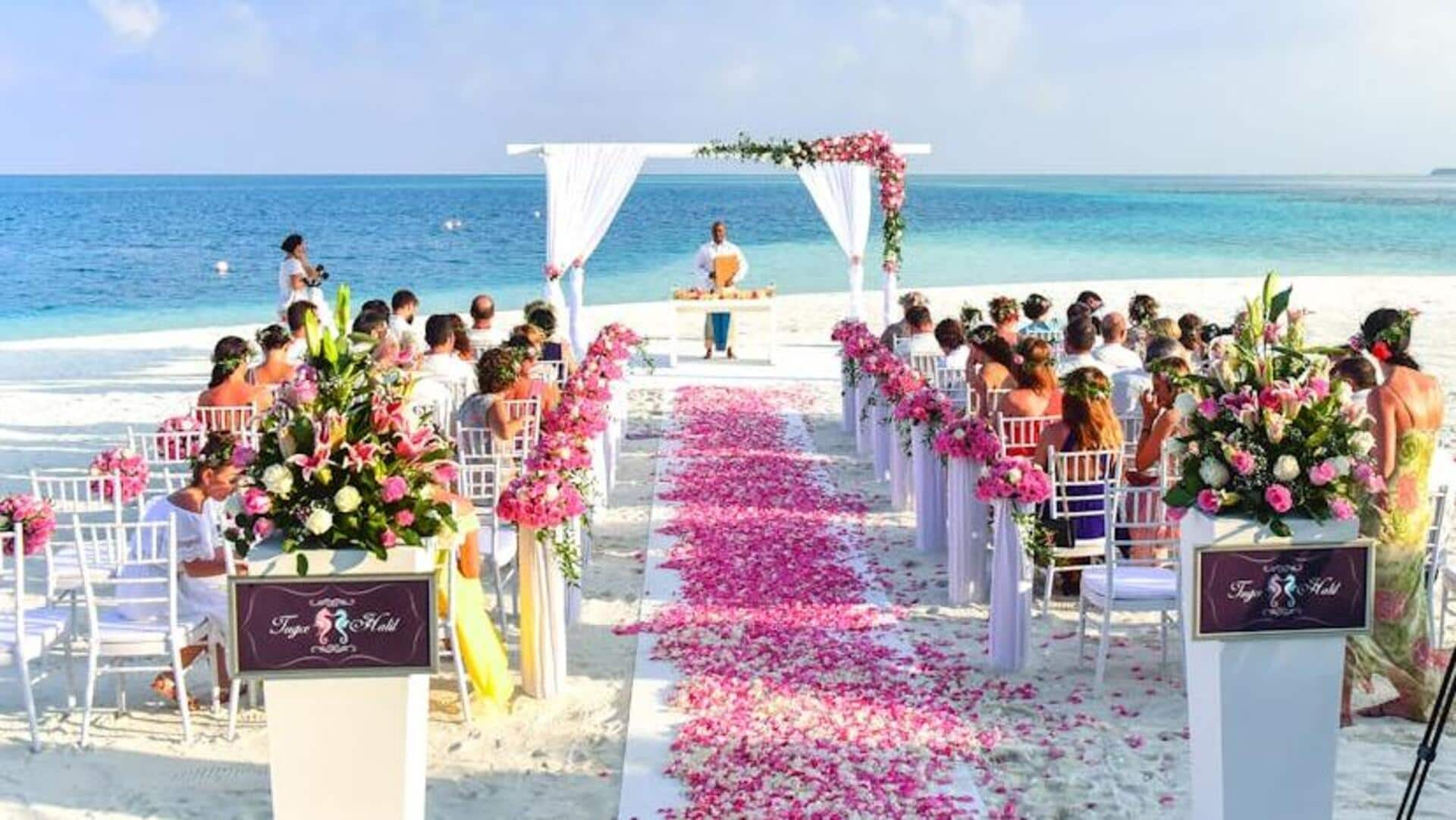
How to dress appropriately for various cultural nuptials
What's the story
Weddings are a global celebration of love and unity, each with distinct attire rules that reflect cultural diversity. Understanding these customs is crucial for guests to show respect and fully engage in the celebration without fashion missteps. This article provides an overview of wedding attire etiquette around the world, offering insights on how to dress appropriately for various cultural nuptials.
Tip 1
Cultural dress codes
Before attending a wedding, it's important to research cultural attire expectations. In India, guests often choose bright colors like red and gold, while white is traditionally reserved for the bride. Conversely, in Western cultures, wearing white as a guest is considered inappropriate. Japanese wedding guests are expected to wear subdued colors. Prioritizing cultural sensitivity over personal style ensures respect for the occasion's traditions.
Tip 2
Invitation clues
Wedding invitations often contain essential dress code details. Look for phrases such as "black tie" or "cocktail attire," which indicate the level of formality expected. Additionally, if the invite mentions a specific theme or color scheme, dressing accordingly is a thoughtful way to honor the couple's wishes. Paying attention to these cues helps guests appropriately align with the envisioned aesthetic of the wedding.
Tip 3
Local customs
Local customs can significantly influence wedding attire rules. For example, in many Middle Eastern countries, modesty is paramount; respectfully covering arms and legs is expected. In various African cultures, guests might be encouraged to don traditional garments to honor the local heritage. When there's uncertainty regarding appropriate attire, it's advisable to consult someone knowledgeable about the specific local wedding traditions.
Tip 4
Seasonal considerations
Seasonal and locational factors are crucial when selecting wedding attire. For a beachside ceremony, opt for light, airy fabrics and accessories that provide protection from the sun. Conversely, winter celebrations necessitate additional layers to maintain warmth. Choosing materials such as wool or velvet can offer comfort in cold weather while maintaining a sense of sophistication and style appropriate for the occasion.
Tip 5
Respect religious settings
Religious venues often have specific dress codes; for instance, Christian churches usually expect shoulders to be covered, and Islamic mosques require a headscarf. To dress respectfully, guests should research these religious customs or consult with the wedding party about attire requirements. This ensures that one's dress is appropriate for the religious setting of the wedding ceremony.